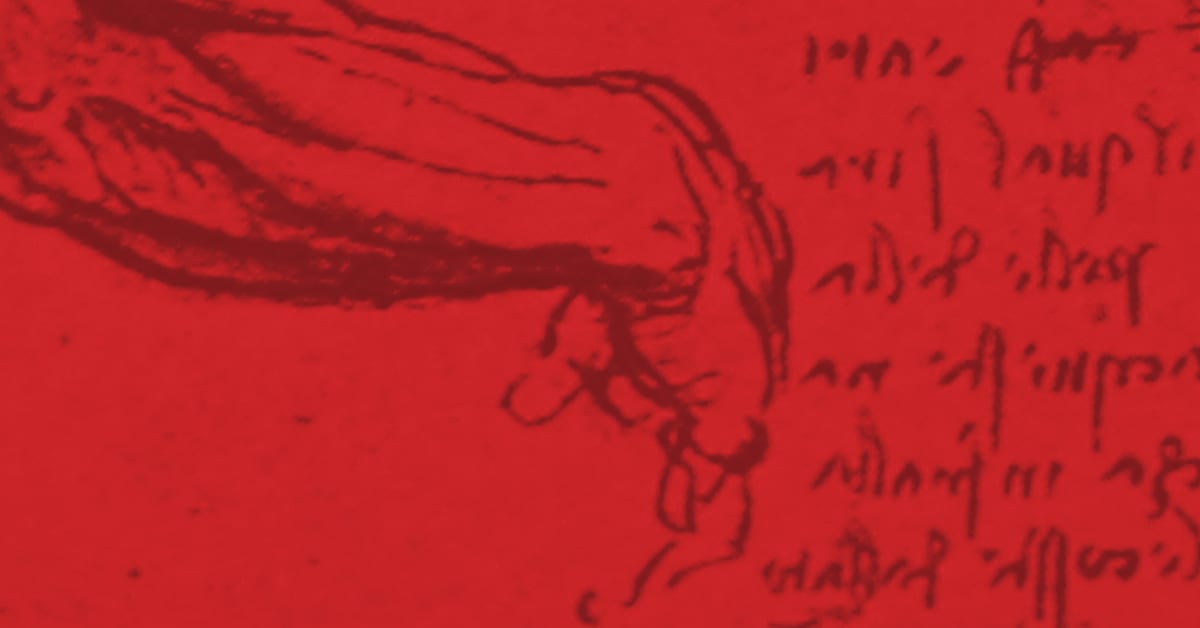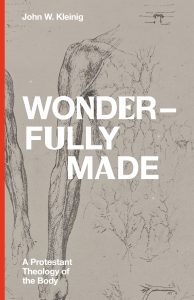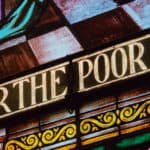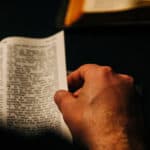
In this excerpt from Wonderfully Made: A Protestant Theology of the Body, John Kleinig explains why our physical bodies matter to God.
Our world has many living wonders, many ordinary creatures that are all quite extraordinary. This array of wonders ranges from a simple cell to the supremely complex human body. From every point of view, each embodied person is the most amazing visible being on earth. Our human bodies, linked as they are to the whole web of life on earth and the life of the living God, are indeed “fearfully and wonderfully made” (Ps 139:14).
Yet the more we examine our bodies and learn about them, the more we discover how little we actually understand them and their complexity. Our vision of ourselves is always partial, incomplete, and one-dimensional, often a reflection of how others see us and of what they tell us about ourselves. We never see ourselves directly, or fully, either by looking at ourselves in a mirror or by thinking about what has happened to us. We only ever see bits and pieces, moments and episodes, in the story of our physical lives on earth—mere snapshots at various stages of our lives, rather than a complete video of our entire embodied life from all points of view.
There is only one who sees us fully at each moment and entirely in our whole existence. He sees us physically and mentally, personally and spiritually. The only one who has an accurate vision of us is the living God, the author and director of our bodily lives. That’s the message of Psalm 139. He is the only one who knows my heart (1 Kgs 8:39; Ps 44:21, Acts 1:24; 15:8). He knows how I think and what I feel; he knows what I am and why I act as I do. He is “acquainted with all my ways” (Ps 139:3). Even though I cannot see him physically, he sees me completely (Ps 139:1–12). Thus, the royal singer of this psalm not only praises God for his wonderful creation but also praises God for God’s even more wonderful vision of him (Ps 139:13–18). He pictures his whole life from the moment of conception as a process of waking up from a deep sleep to discover God’s presence with him:
For you formed my inward parts;
you knitted me together in my mother’s womb.
I praise you, for I am fearfully and wonderfully made.
Wonderful are your works;
my soul knows it very well.
My frame was not hidden from you,
when I was being made in secret,
intricately woven in the depths of the earth.
Your eyes saw my unformed substance;
in your book were written, every one of them,
the days that were formed for me,
when as yet there was none of them.
How precious to me are your thoughts, O God!
How vast is the sum of them!
If I would count them, they are more than sand.
I awake and I am still with you.
The body matters much more than we usually imagine it does. It matters because it locates us in time and space here on earth. It matters because we live in it and with it. It matters because through it we interact with the world around us, the people who coexist with us, and the living God who keeps us physically alive in it. It matters even though it is so fragile and so easily damaged. It matters even though we rebel against our Creator and abuse our fellow creatures on earth. It matters even though it is finite and doomed to die. Most of all, it matters to us because it matters so much to God. He is the supreme philanthropist, the lover of humanity (Titus 3:4).
The sacred Scriptures show us how much the human body matters to God, and why. From Genesis to Revelation, Scripture paints two pictures of bodily life on earth. On the one hand, it shows us how God regards the human body, the body that he creates in his image, redeems by the incarnation of his Son, and sanctifies for life with him through the Holy Spirit. On the other hand, it also shows us how completely it has been corrupted by rebellion against God, how badly it has been misused to damage other people and the world around it, and how tragically it is doomed to die. Yet it would be wrong to give equal weight to both these portrayals, for the bright vision of its glory far outweighs the gray vision of its misery. Thus, in 2 Corinthians 4:17, Paul exclaims that each momentary affliction of the body is preparing us for “an eternal weight of glory beyond all comparison” with anything that we have yet experienced.
The Theophanic Body
Like a composer who values all musical instruments in an orchestra as well as their skillful players, God prizes our bodies and us as embodied people for what he plans to accomplish through us individually and corporately. Since he has made each of us and the whole of humanity in his image, the value of the body does not depend on its worth to the person who owns it; it does not come from its social status or usefulness, nor is it derived only from its place and function in the natural world. The worth of the body is conferred by its divine Creator. The triune God designed it for himself and for participation in his own eternal life. He made it as it is so that he could give himself and his gifts bodily to people on earth and work with them in caring bodily for others and the world, which is their natural habitat. He designed it so that he could show himself bodily to other embodied people and give them bodily access to himself by his theophany, his physical appearance to them in Jesus.
The human body was made to bridge two realms: the invisible, eternal realm of God and the visible, temporal realm of his creation. Created as they were in God’s image, all human bodies were meant to be holy even as God is holy. Thus, human bodies do not just belong to this world, but also to the eternal world of God. They are meant to reflect the triune God bodily in their life and behavior, all in keeping with their own unique characteristics and according to their unique calling. Each person has been made to represent him partially in their bodily life on earth. None of them represents God fully except Jesus; he is not just a man made in God’s image, but he is God’s image, the visible likeness of the invisible God (2 Cor 4:4; Col 1:14).
As a result of human rebellion against God, people serve God poorly and badly. They are far from the glory of God (Rom 3:23). Like rooms with cracked and dirty windows, they do not let the light of God shine in them and out through them. Like a damaged and mistuned musical instrument, they eke out an off-pitch tune. They are not as they should be, nor do they any longer function properly. They have lost their access to God and live corruptly apart from him.
But through God’s Son, who took on a human body to reclaim us bodily for fellowship with God the Father, our bodies once again become what they were meant to be. By our faith in Jesus and union with him, our bodies share in his holiness by being filled with the Holy Spirit. They become temples of the Holy Spirit (1 Cor 6:19). As shrines where God resides, they share in his hidden glory and display it by word and deed to the world. So, through our bodily union with Jesus, we are filled with all the fullness of God (Eph 3:19). We glorify God and honor him with our bodies (1 Cor 6:20). Through him our bodies once again become what they were meant to be: agents of God and instruments by which he shows himself and gives of himself to other people on earth. By their union with Jesus they become theophanic; they manifest God to people on earth. As disciples of Jesus and recipients of his Spirit, we exhibit the grace of God the Father bodily in the course of our earthly lives. As blameless, innocent, and unblemished children of God, we are enabled to “shine as lights” in a dark and crooked world (Phil 2:15). What greater honor could be conferred on us and our bodies than that?
So then, the value of each body is not inherent to it, that is, does not come from itself. It has its worth from God and receives its full worth, its glory, from its union with Christ. Each human body was made to be part of his body. Or, to change the picture, each body was crafted to be a living stone, set—together with and upon Jesus—in its proper place in God’s holy temple (1 Pet 2:5). Each human body has its proper place there with God. It will not come into full view and be itself until it is there. Only there will it be as it was meant to be, just as our bodies are, even now, visible and colored only in the light.
This post is adapted from Wonderfully Made: A Protestant Theology of the Body by John W. Kleinig (Lexham Press, 2021).







